5 head-scratchers from the NHL offseason
It's been another eventful offseason in the NHL. Many of this summer's moves can be justified - but some left a lot to be desired.
The Toronto Maple Leafs raised eyebrows by signing aging enforcer Ryan Reaves (who'll be 37 in January) to a three-year contract. The Los Angeles Kings shipped promising defenseman Sean Durzi to the Arizona Coyotes - who could flip him to one of the Kings' rivals at the trade deadline - for a mere second-round pick. The Ottawa Senators gave historically mediocre (until last season's small sample) ex-Kings goalie Joonas Korpisalo a five-year deal.
Those weren't even the most perplexing decisions made by the league's general managers. Here are five offseason happenings that had us scratching our heads:
Sharks get underwhelming return for Karlsson
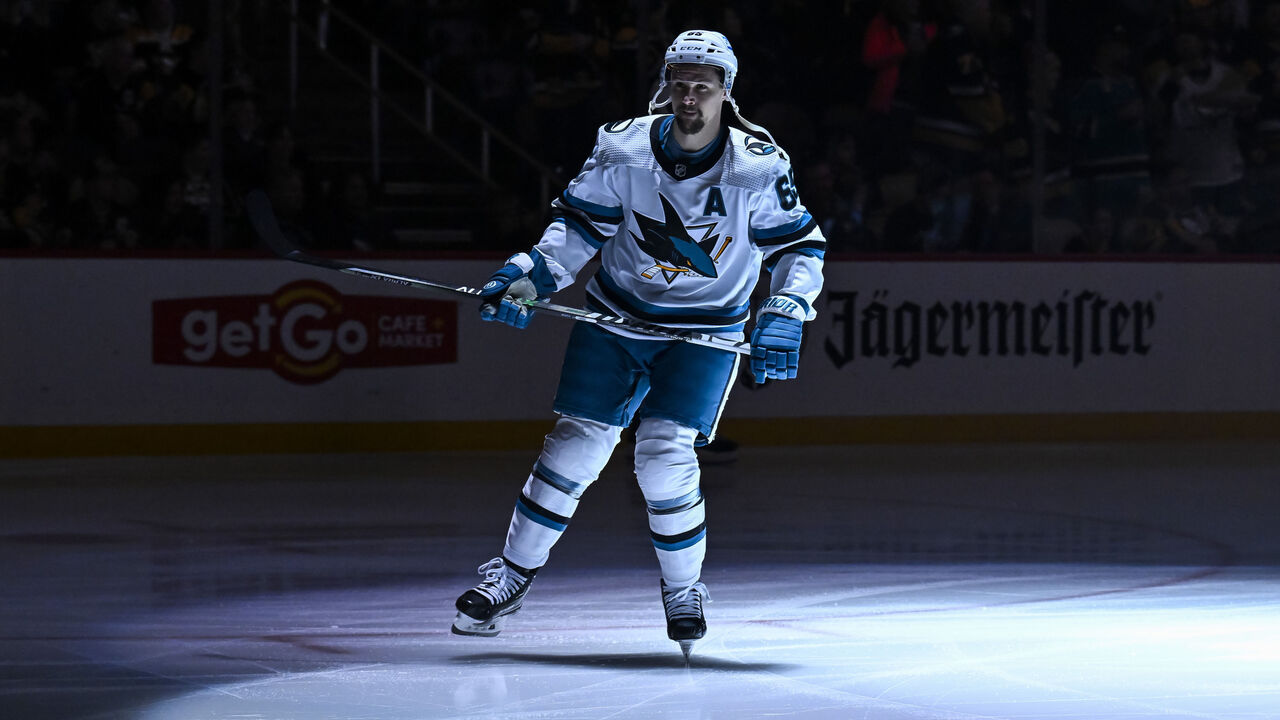
The fact that the San Jose Sharks traded Erik Karlsson wasn't surprising in the least. The swap had been in the works for months and seemed inevitable by the end of the 2022-23 season. By the time August rolled around, it was simply a matter of where the reigning Norris Trophy winner would end up.
What was bizarre about the transaction - once the Pittsburgh Penguins and Montreal Canadiens completed it with San Jose on Aug. 6 - was just how little the Sharks got back. San Jose received Mikael Granlund and Jan Rutta from the Pens, Mike Hoffman from the Habs, and a first-round selection in next year's draft that's top-10 protected.
The Penguins likely weren't going to pick in the top 10 regardless - especially after landing Karlsson - but still. Landing only that pick was a major disappointment for the Bay Area-based club. In addition, all three players Grier acquired are on the wrong side of 30 and will simply be roster fillers preventing younger players with more upside from getting opportunities to grow on the rebuilding squad.
Grier did minimize the percentage of Karlsson's contract the Sharks will retain - they'll only be on the hook for $1.5 million per season through 2026-27. But the Sharks needed to get more prospects and real assets considering they were trading a superstar.
Avalanche knock on Wood with 6-year deal
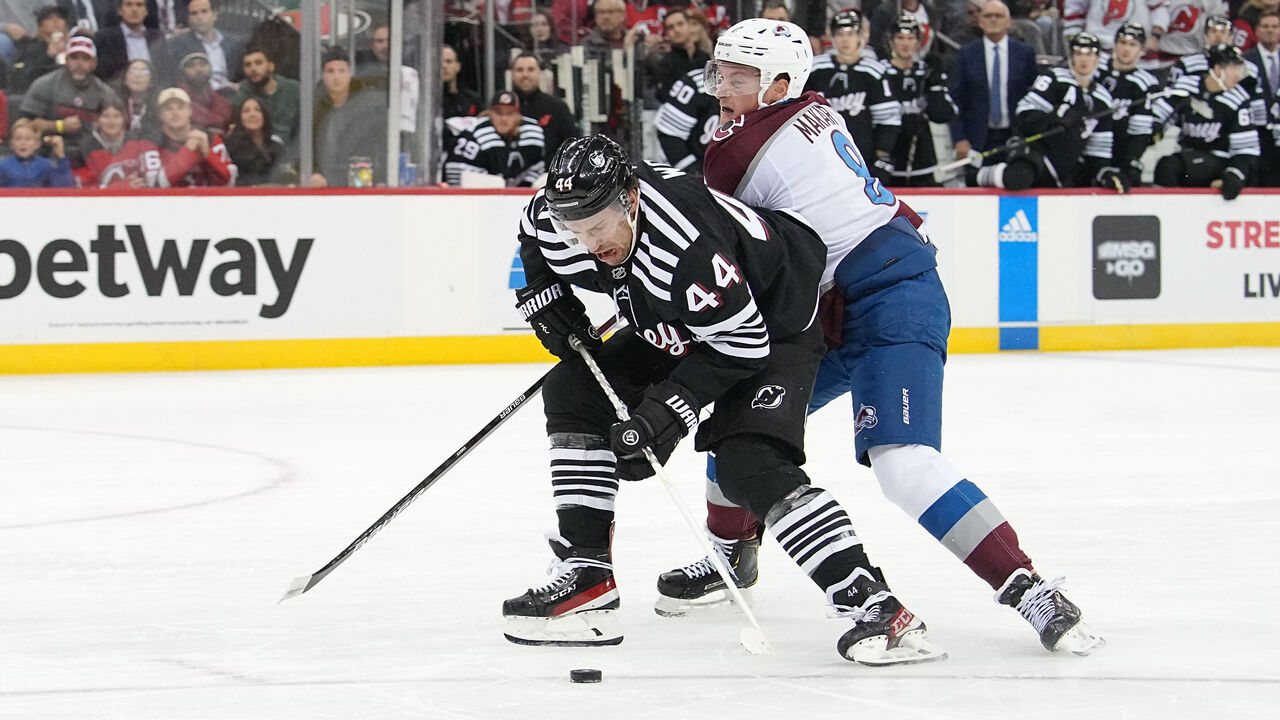
Colorado Avalanche GM Chris MacFarland had a solid offseason as a whole, but one of his moves stands out as a real puzzler. The 2021-22 Stanley Cup champions brought in Miles Wood on a six-year pact with an average annual value of $2.5 million. Yes, the AAV is quite digestible, but why does Wood deserve a contract that's two years shy of the maximum term?
The answer, apparently, is that Wood is 6-foot-2 and weighs 195 pounds. "I think Miles is a big-body winger that can skate," MacFarland said upon signing him. The GM also noted Wood's "wrecking-ball" style of play and clearly considered physicality up front a team need. But in an offseason where shorter-term deals have been the rule and not the exception, why commit to a one-dimensional player like Wood through 2028-29?
Wood's AAV might look good in the future with the cap rising, especially if he excels. His offensive numbers should increase given his new teammates, but this is a player who, in seven full seasons, only scored more than 13 goals twice. His career-high of 19 came six years ago. It's not all about goals and points, but Wood's career best in the latter category is 32, which he posted in that same 19-goal campaign.
The Buffalo-born forward has been slowed by injuries at various points in his career. But that's another reason why handing him a six-year contract is a bad idea. We may never see a stranger overpay than the Lightning giving up five draft picks for Tanner Jeannot, but Wood's new deal could come close.
What exactly are the Predators doing?
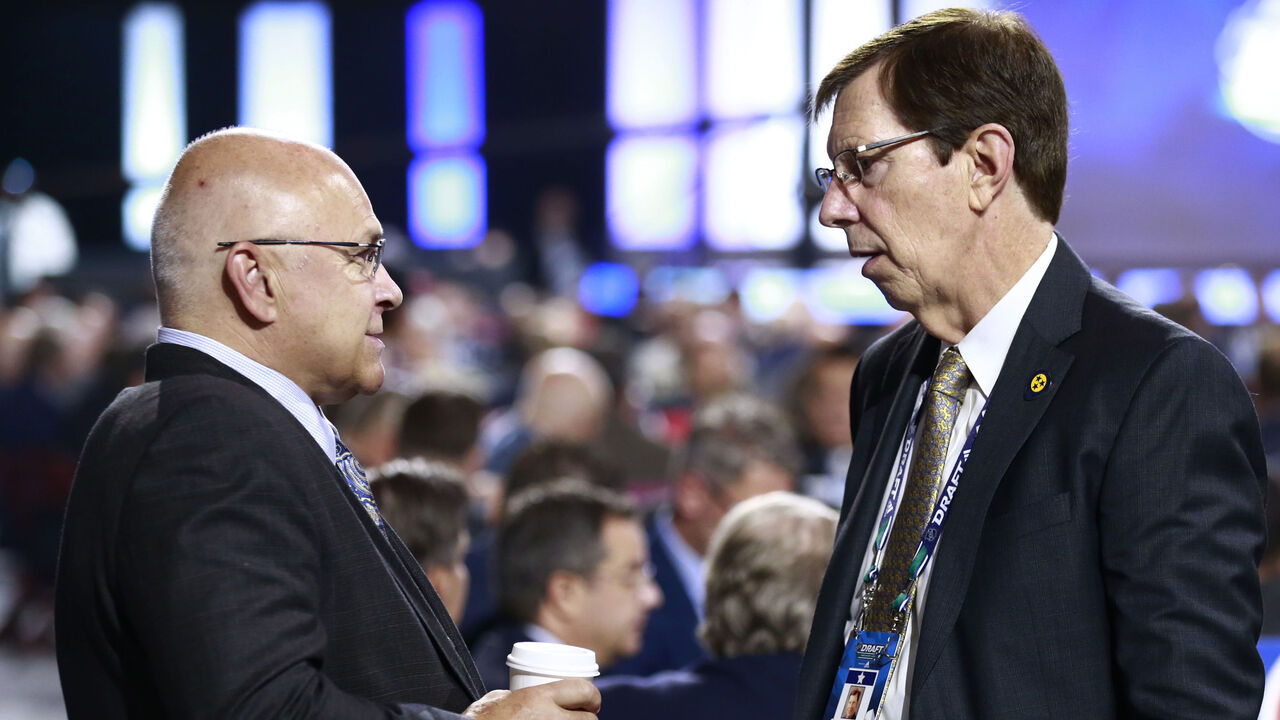
No one doubts Barry Trotz's qualifications as a head coach, but his early performance as a GM is about what you'd expect from someone who's never held the job at the NHL level before. He and his Nashville Predators have had a strange summer.
However, Trotz isn't solely to blame. Nashville's bewildering offseason actually started before the now-retired David Poile handed him the reins on July 1. One week before free agency opened, the Preds sent Ryan Johansen to Colorado for the rights to Alex Galchenyuk - who they didn't ultimately sign - while retaining half of Johansen's $8-million cap hit for the next two seasons. Then, on June 30, Nashville bought out Matt Duchene, who had the same cap hit but for three more campaigns.
So the Predators are rebuilding, right? Well, a team built around Filip Forsberg, Roman Josi, and Juuse Saros can't just tear it down. So they signed the still-effective but 32-year-old Ryan O'Reilly to a four-year agreement, another veteran ex-Maple Leaf in Luke Schenn for three years, and Gustav Nyquist (a 34-year-old who was limited to 51 games last season due to injury) to a two-year pact.
Nashville needed to improve significantly on paper to return to its status of years gone by as a Stanley Cup contender. But this team appears destined to once again battle for a wild-card spot and face a tough first-round matchup - if it even qualifies for the playoffs.
Lamoriello's obsession with term goes too far
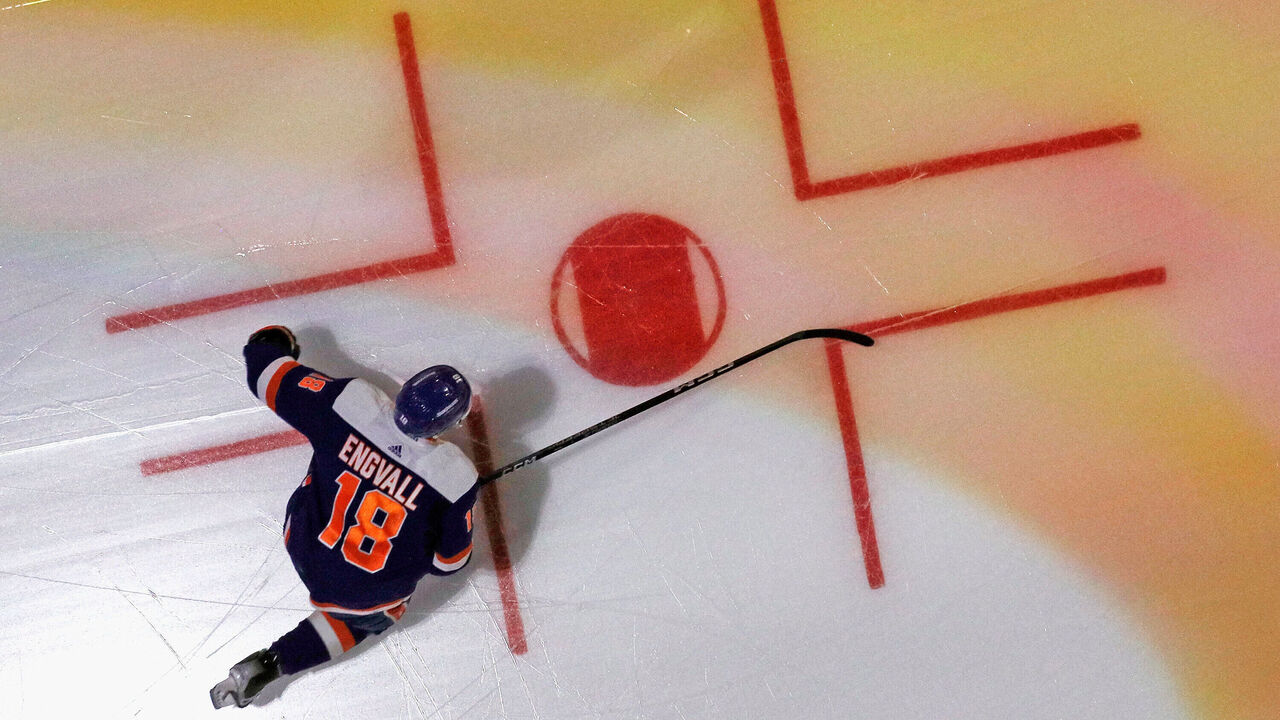
New York Islanders president of hockey operations and GM Lou Lamoriello has no shame. This much we know from following his decades of experience running NHL teams. He's never been shy about locking players into long-term deals, which is fine when it's a star like winger Mathew Barzal (eight years, $73.2 million last October), center Bo Horvat (eight years, $68 million in February), or goaltender Ilya Sorokin (eight years, $66 million on July 1).
But someone needed to grab Lou's phone before he inked Pierre Engvall to a seven-year pact on free agency's opening day. Engvall's AAV is only $3 million because of the length of the deal, and again, that will look better with the cap rising. But committing to a bottom-six forward until he's 34 is ill-advised. To make matters worse, Lamoriello also signed Scott Mayfield - a soon-to-be 31-year-old third-pairing defenseman - to a seven-year contract of his own at $3.5 million annually.
The Islanders are built around defense, so Lamoriello inking blue-liners Adam Pelech (eight years, $46 million in August 2021) and Ryan Pulock (eight years, $49.2 million two months later) didn't seem as misguided at the time. But New York now has seven players signed through 2028-29, with six of them on the books through the following season and three of them under contract until at least the conclusion of 2030-31. That won't end well if they decline at the typical rate or get derailed by injuries as they age.
Red Wings fail to learn from Copp blunder
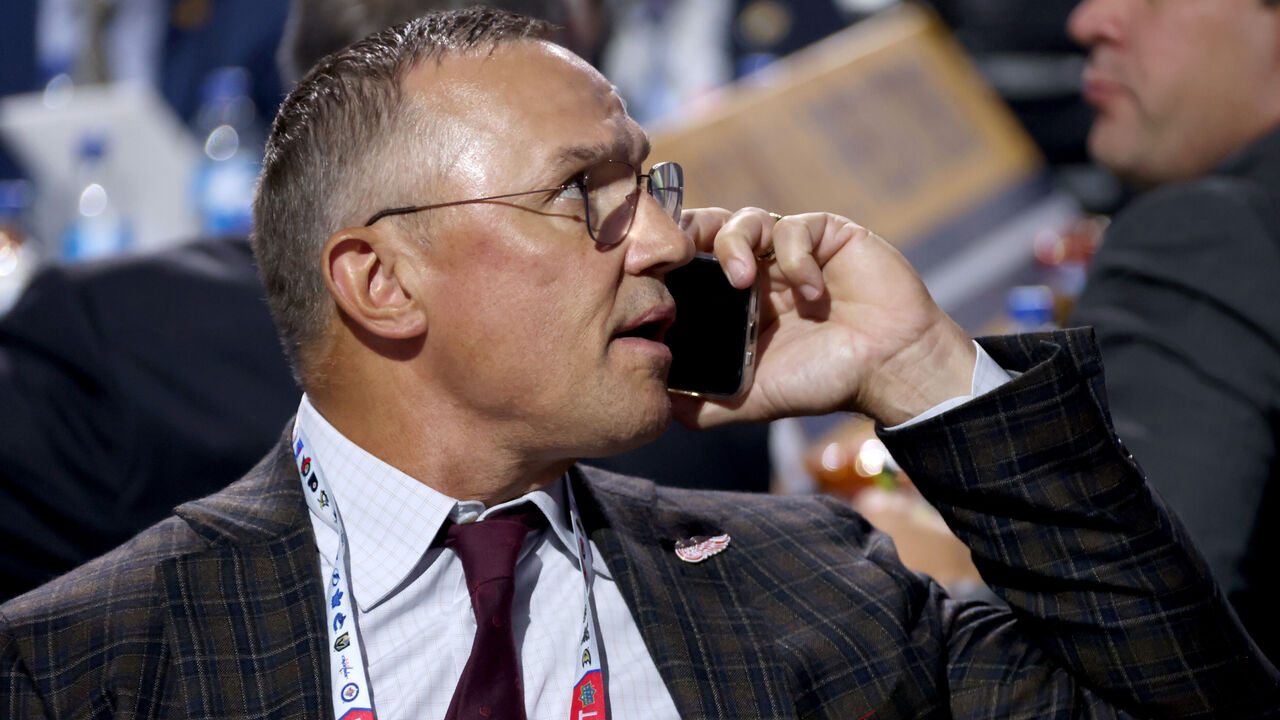
Steve Yzerman is not the same GM with the Detroit Red Wings that he was with the Tampa Bay Lightning. The first major hint came in July of last year when he signed overachieving Michigan-born free-agent forward Andrew Copp to a five-year deal at $5.625 million annually.
Copp found his game as a multi-positional offensive contributor over parts of two seasons - his final ones with the Winnipeg Jets - before they traded him to the New York Rangers at the 2021-22 deadline. He posted over a point per game with the Blueshirts down the stretch of that regular season and then had a great postseason, too. But after cashing in with the Wings, the local boy collected only nine goals and 33 assists while posting subpar underlying numbers over 82 games last season.
Fast-forward to July 1, 2023. Yzerman signed eight players that day, but he gave the most money and longest term (five years, $25.5 million) to J.T. Compher, a similarly versatile but limited forward. Compher came off a career year offensively, having produced 52 points in 82 games with the Colorado Avalanche. He's a fairly dependable second-line center and proved he can play on the top line when necessary.
But the Red Wings now pay their middle-six pivots, Compher and Copp, more than $5 million each for five and four more seasons, respectively. Yzerman traded for and extended Alex DeBrincat eight days later, but handing out significant term and money to middle-of-the-lineup players like Compher could haunt the GM if Detroit eventually develops into a contender.
(Salary source: CapFriendly)
HEADLINES
- Falcons headed to Madrid for 2026 regular-season game
- Gold medalists Knight, Hughes brothers appear on 'Tonight Show'
- Toews scores late winner, Kings can't beat Avalanche after coaching change
- Stars hammer Canucks for franchise-record 9th straight win
- Clippers rally from 17-point deficit to beat Warriors in Garland's debut